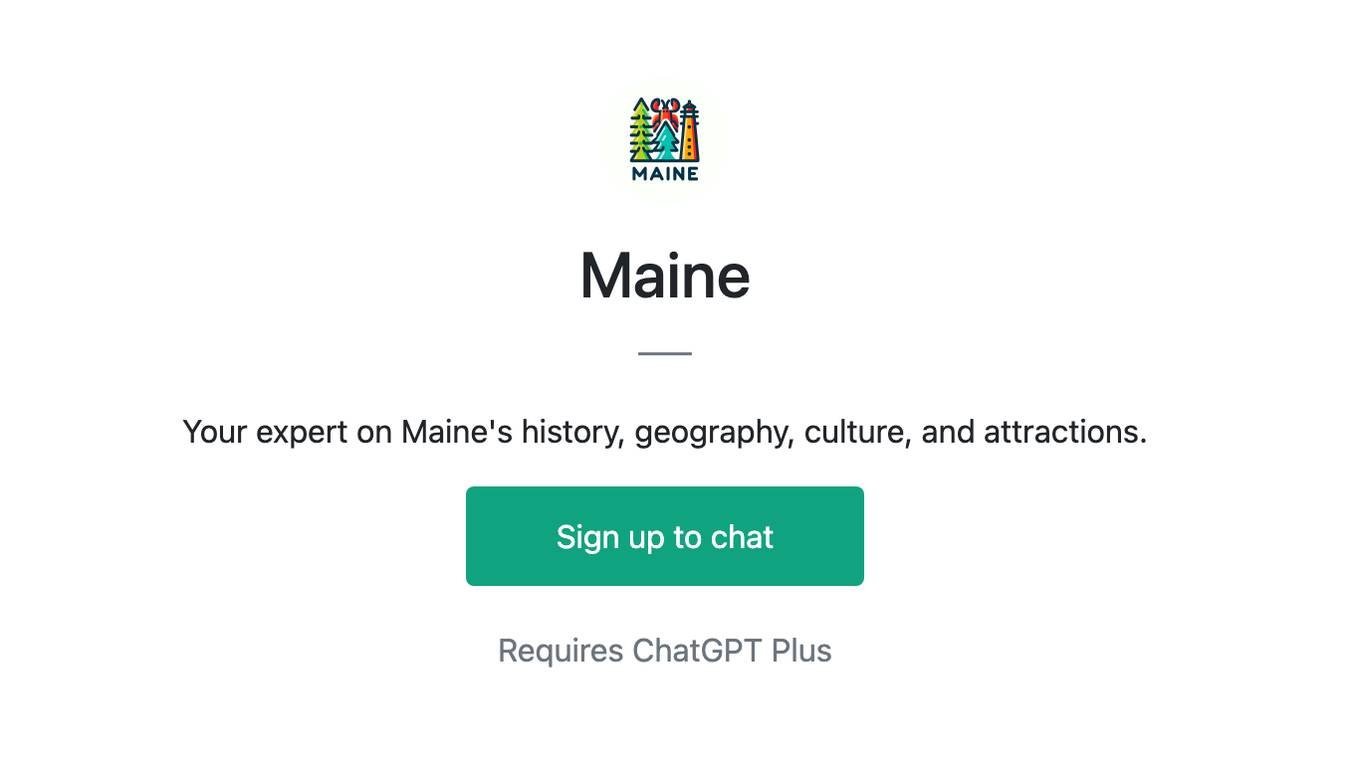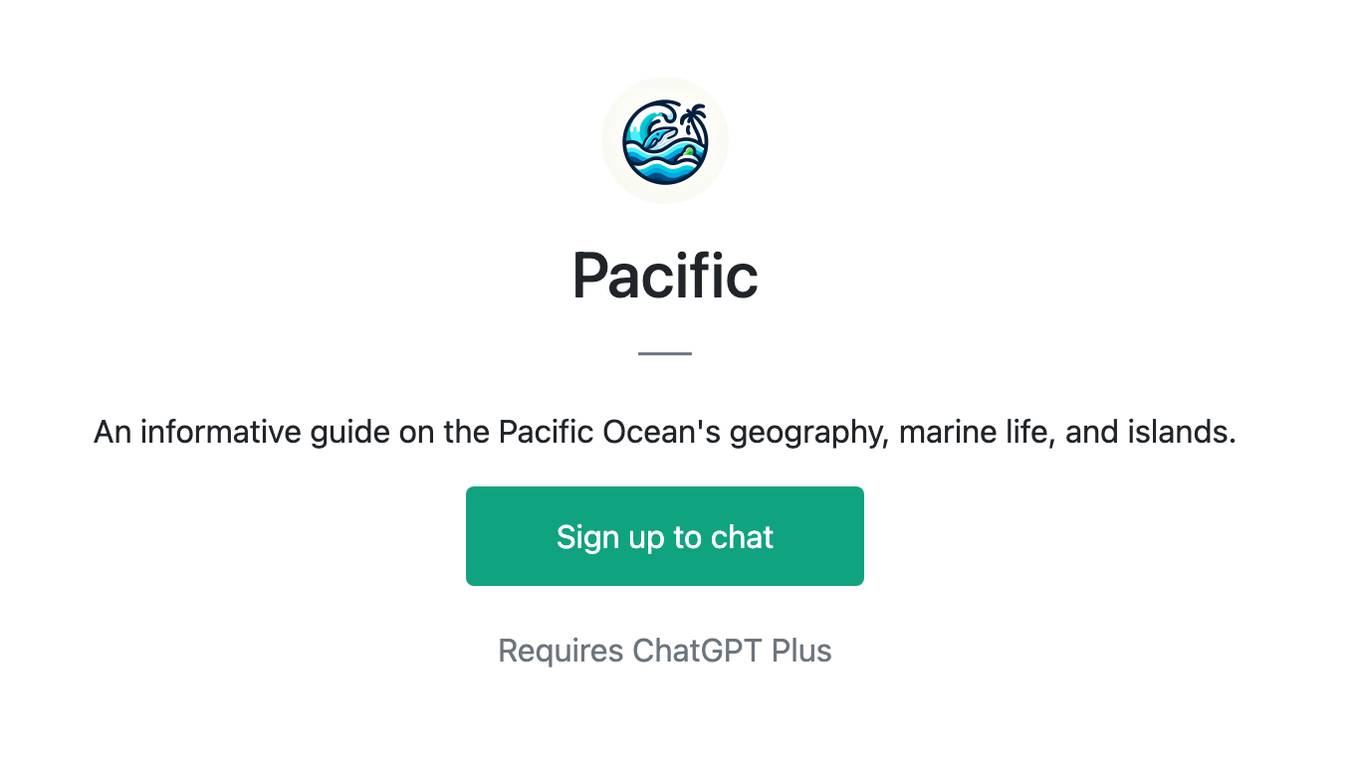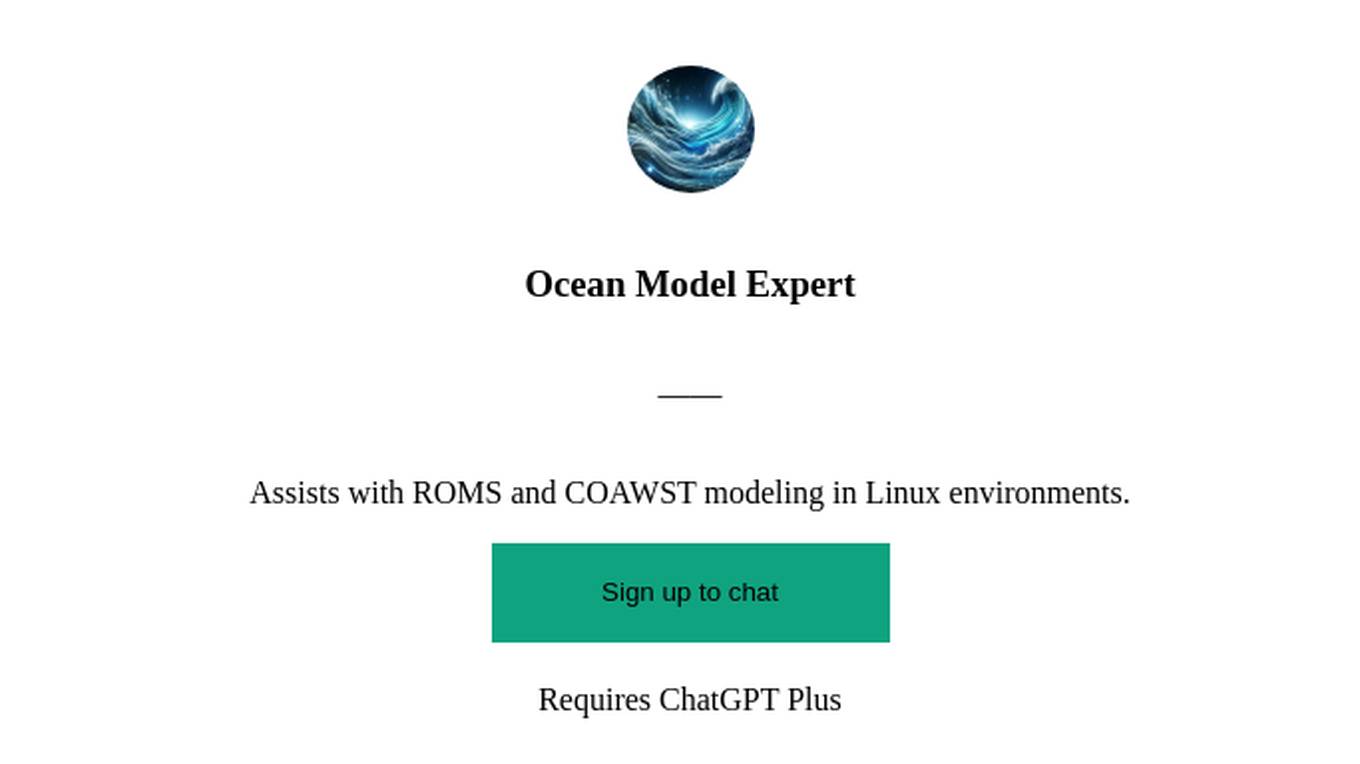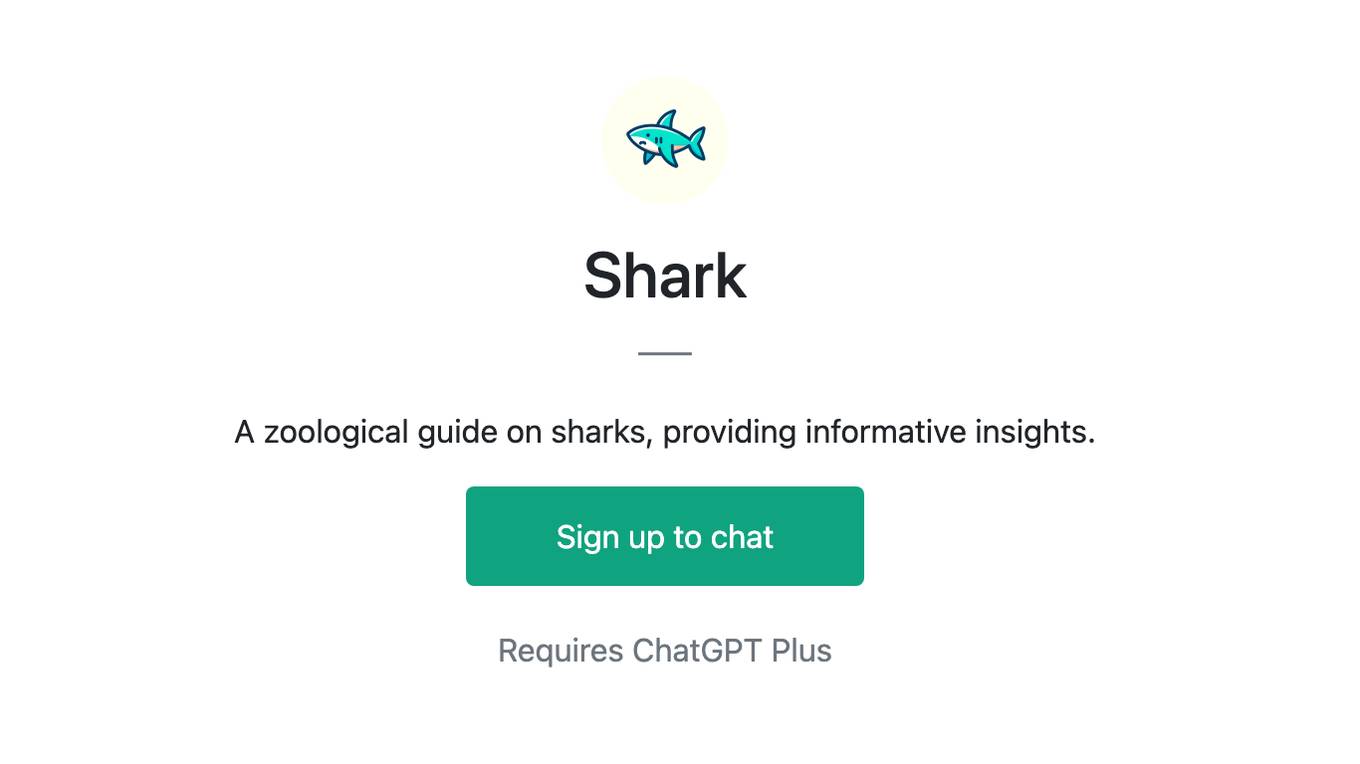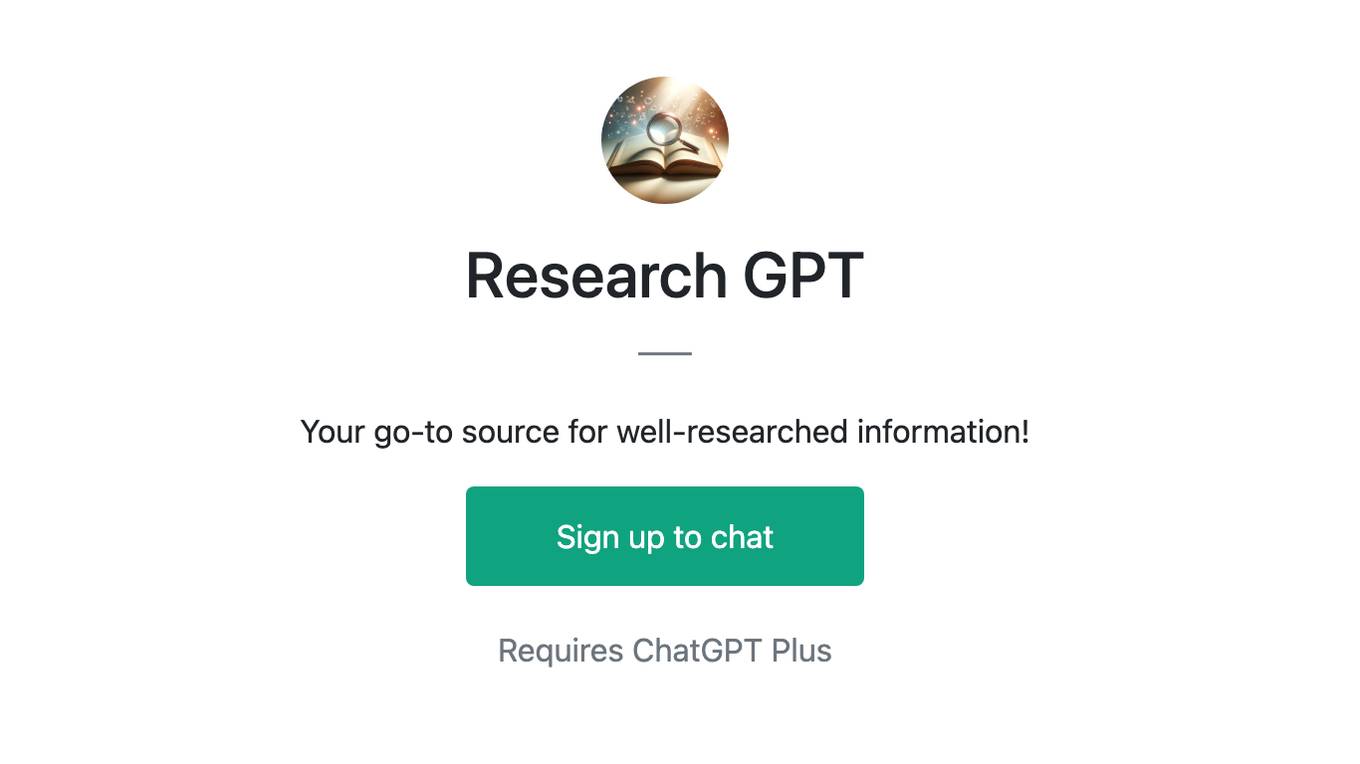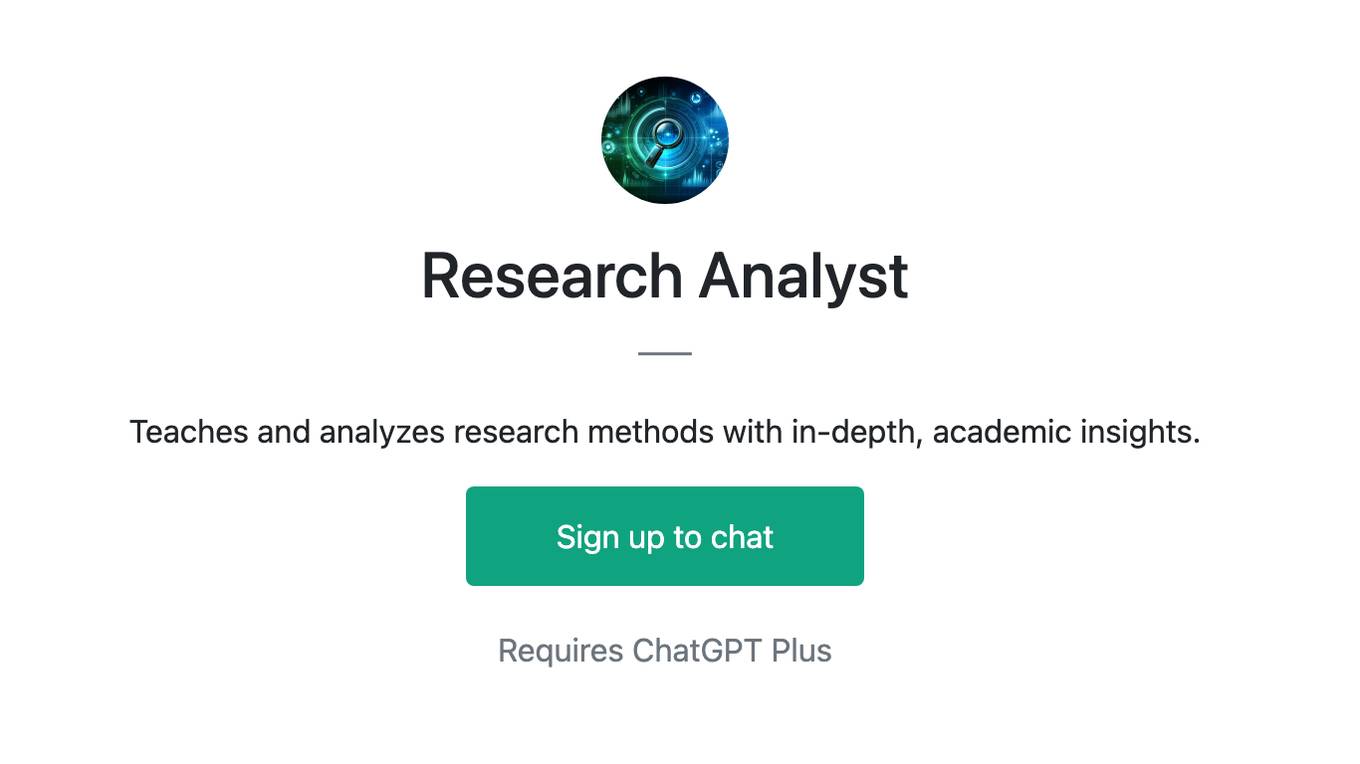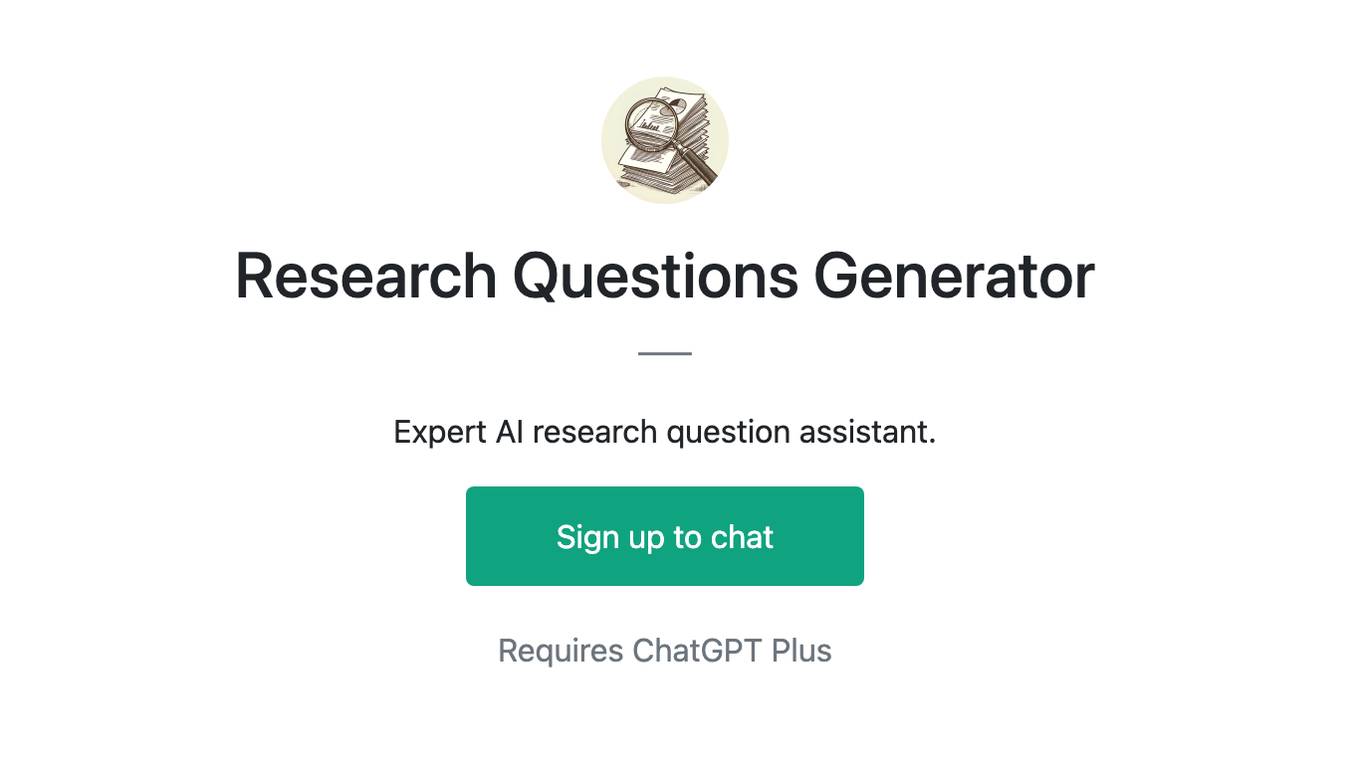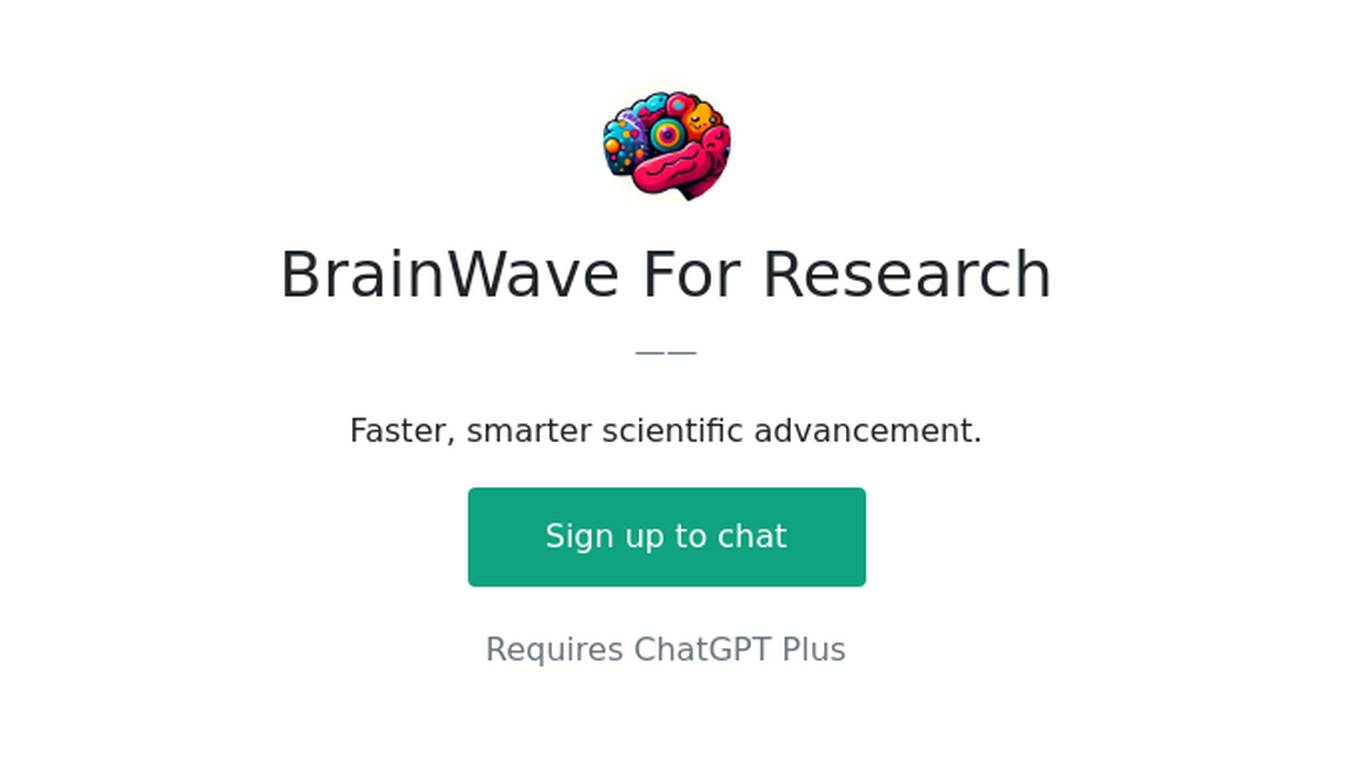Best AI tools for< Research Maine's History >
20 - AI tool Sites
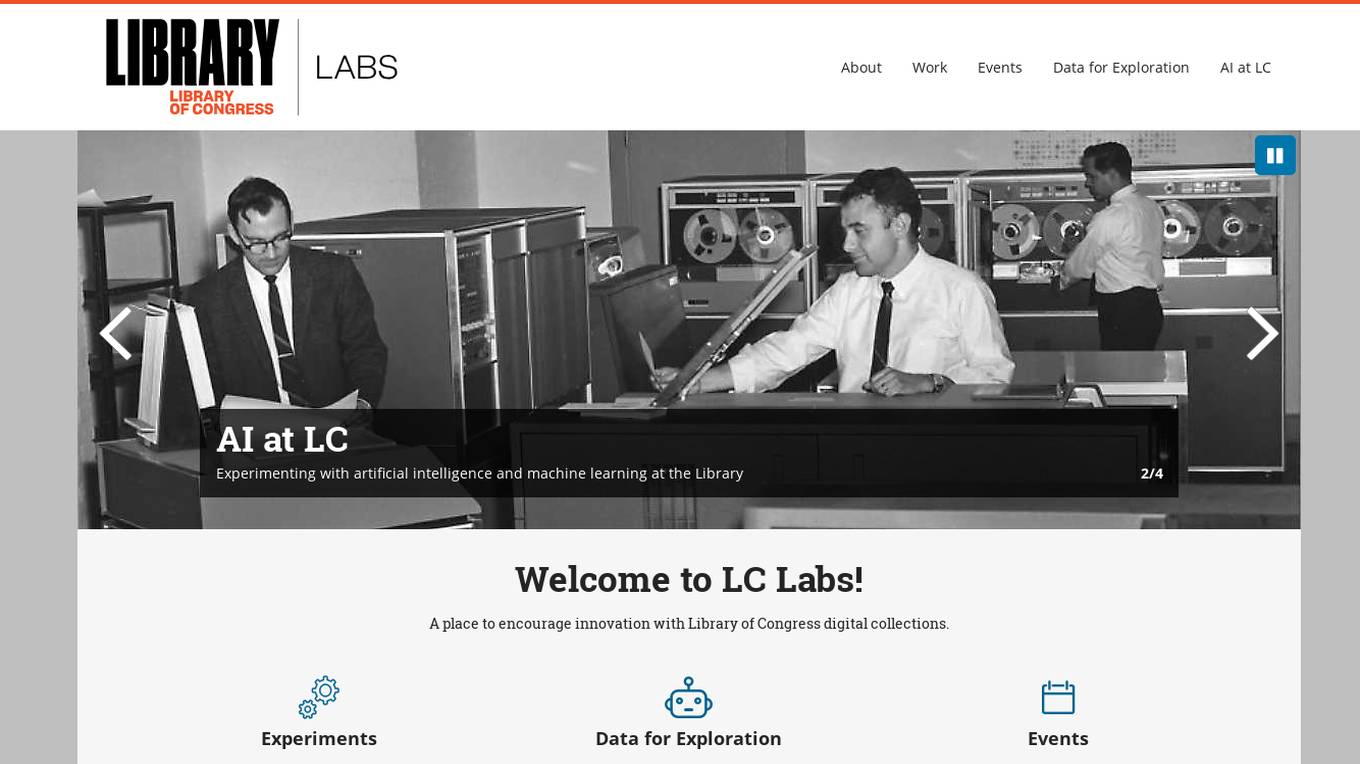
Library of Congress Labs
Library of Congress Labs is an AI tool that focuses on experimenting with artificial intelligence and machine learning at the Library of Congress. It encourages innovation with digital collections, research, and events. The platform aims to explore cultural heritage, connect communities, and center the histories and experiences of communities of color.
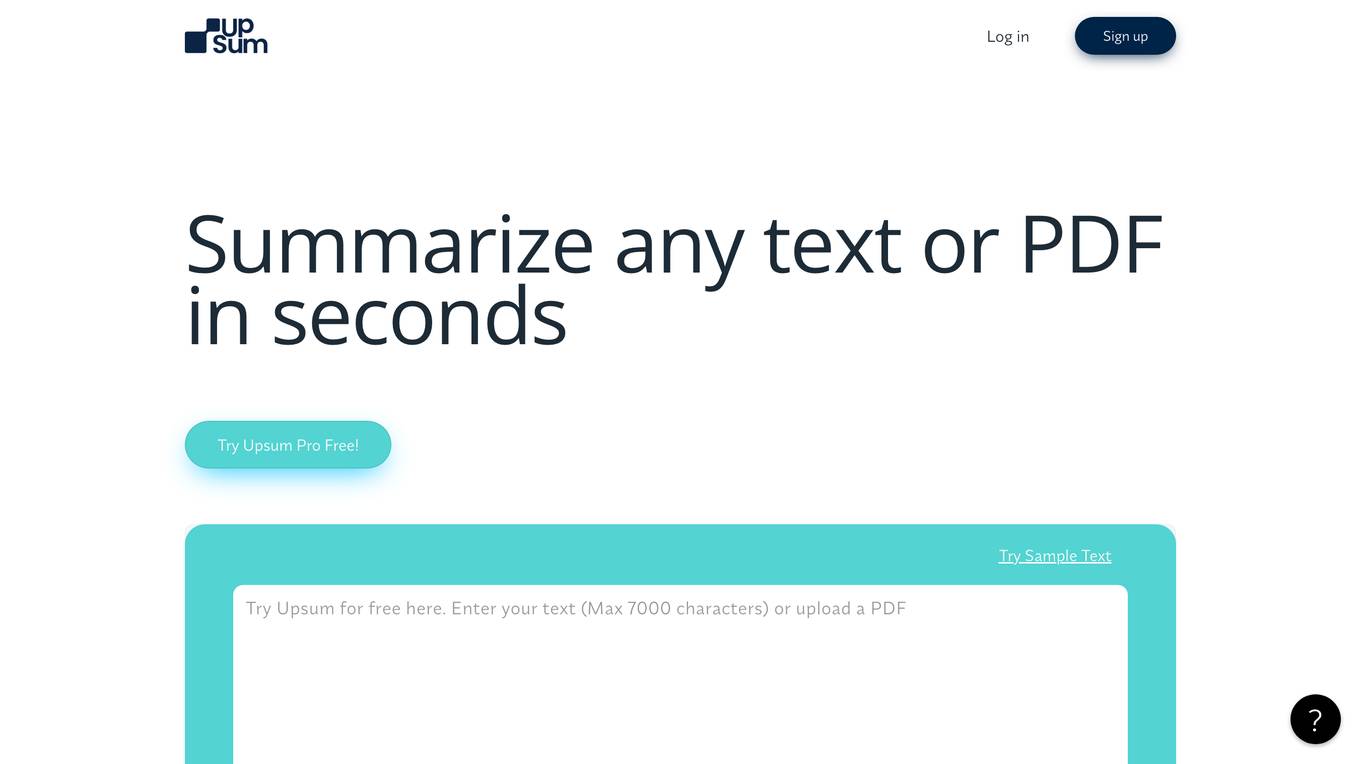
UpSum
UpSum is a text summarization tool that uses advanced AI technology to condense lengthy texts into concise summaries. It is designed to save users time and effort by extracting the key points and insights from documents, research papers, news articles, and other written content. UpSum's AI algorithm analyzes the text, identifies the most important sentences and phrases, and assembles them into a coherent summary that accurately represents the main ideas and key takeaways of the original text. The tool is easy to use, simply upload or paste your text, select the desired summary length, and click the summarize button. UpSum is available as a free web-based tool, as well as a premium subscription with additional features and capabilities.
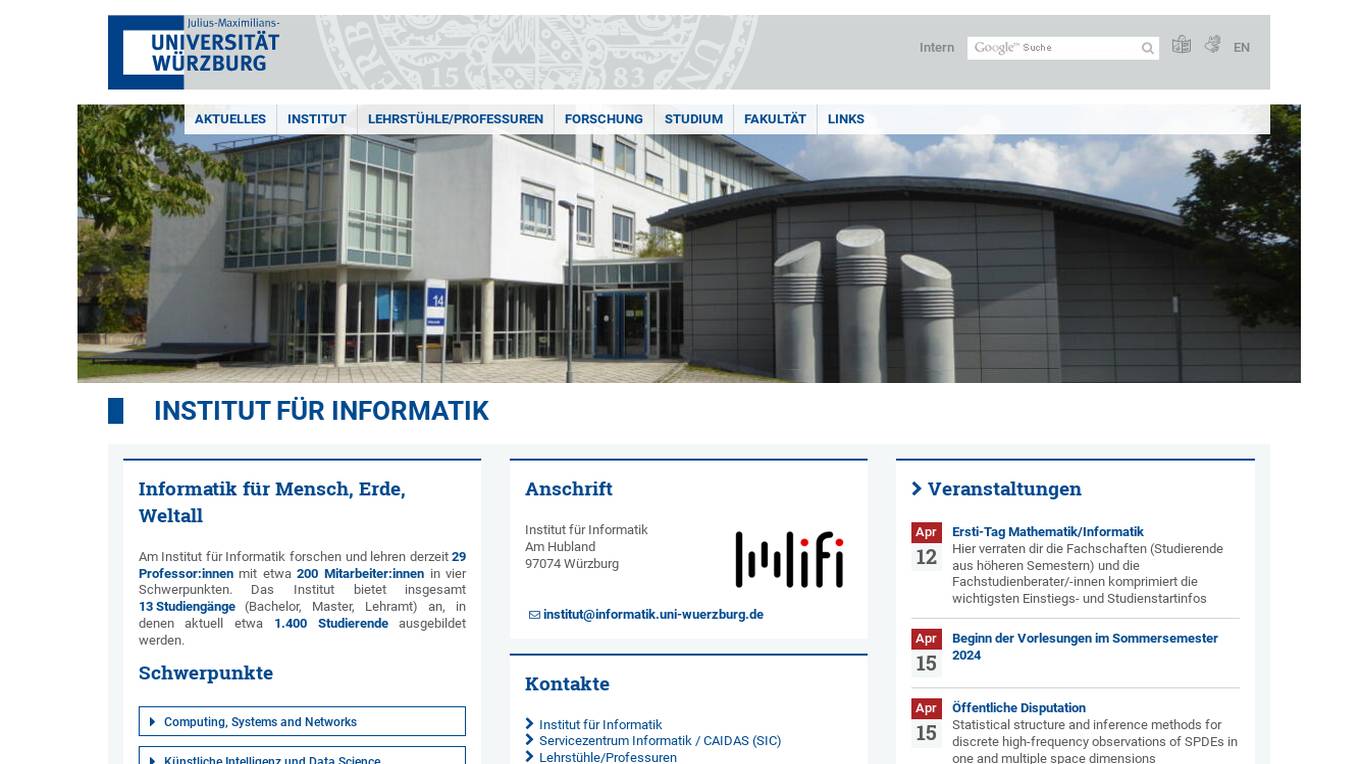
Institute of Computer Science, University of Würzburg
The Institute of Computer Science at the University of Würzburg is a leading research and teaching institution in the field of computer science. With 29 professors and around 200 employees, the institute offers a wide range of study programs, including bachelor's, master's, and teaching degrees. The institute's research focuses on four main areas: Computing, Systems and Networks; Artificial Intelligence and Data Science; Human-Centered Computing; and Aerospace and Robotics.
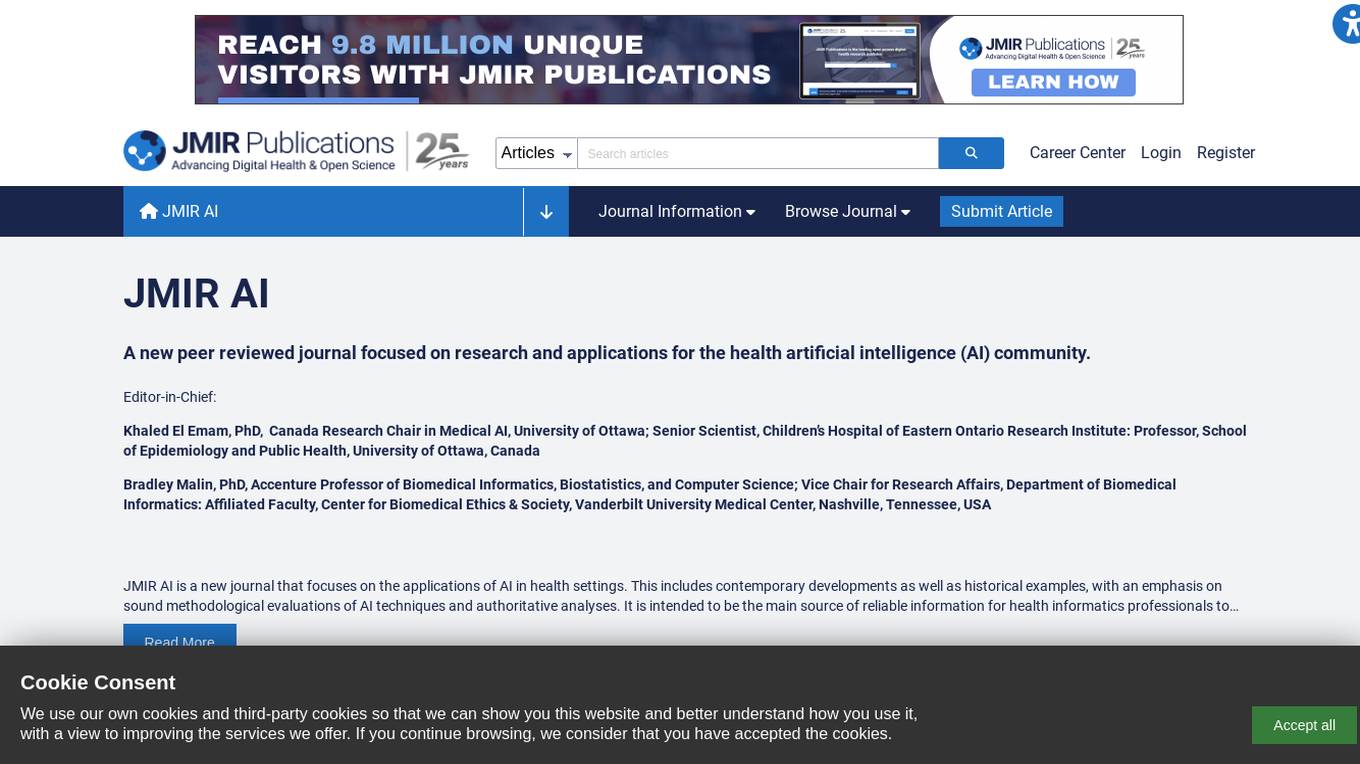
JMIR AI
JMIR AI is a new peer-reviewed journal focused on research and applications for the health artificial intelligence (AI) community. It includes contemporary developments as well as historical examples, with an emphasis on sound methodological evaluations of AI techniques and authoritative analyses. It is intended to be the main source of reliable information for health informatics professionals to learn about how AI techniques can be applied and evaluated.

DWE.ai
DWE.ai is an AI-powered platform specializing in DeepWater Exploration. The platform offers cutting-edge marine optics for crystal clear underwater imaging data, empowering marine robotics, surface vehicles, aquaculture farms, and aerial drones with advanced mapping and vision capabilities. DWE.ai provides cost-effective equipment for monitoring subsea assets, conducting detailed inspections, and collecting essential environmental data to revolutionize underwater research and operations.
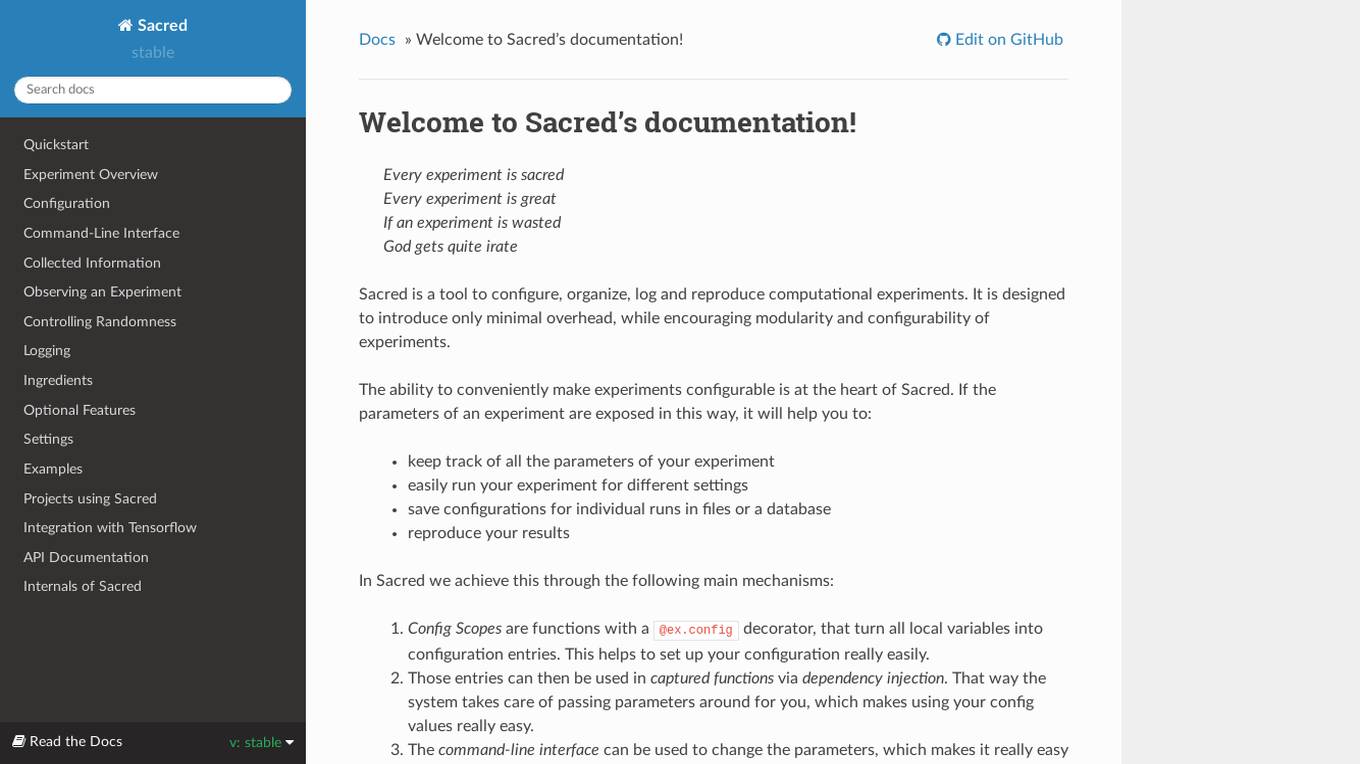
Sacred
Sacred is a tool to configure, organize, log and reproduce computational experiments. It is designed to introduce only minimal overhead, while encouraging modularity and configurability of experiments. The ability to conveniently make experiments configurable is at the heart of Sacred. If the parameters of an experiment are exposed in this way, it will help you to: keep track of all the parameters of your experiment easily run your experiment for different settings save configurations for individual runs in files or a database reproduce your results In Sacred we achieve this through the following main mechanisms: Config Scopes are functions with a @ex.config decorator, that turn all local variables into configuration entries. This helps to set up your configuration really easily. Those entries can then be used in captured functions via dependency injection. That way the system takes care of passing parameters around for you, which makes using your config values really easy. The command-line interface can be used to change the parameters, which makes it really easy to run your experiment with modified parameters. Observers log every information about your experiment and the configuration you used, and saves them for example to a Database. This helps to keep track of all your experiments. Automatic seeding helps controlling the randomness in your experiments, such that they stay reproducible.
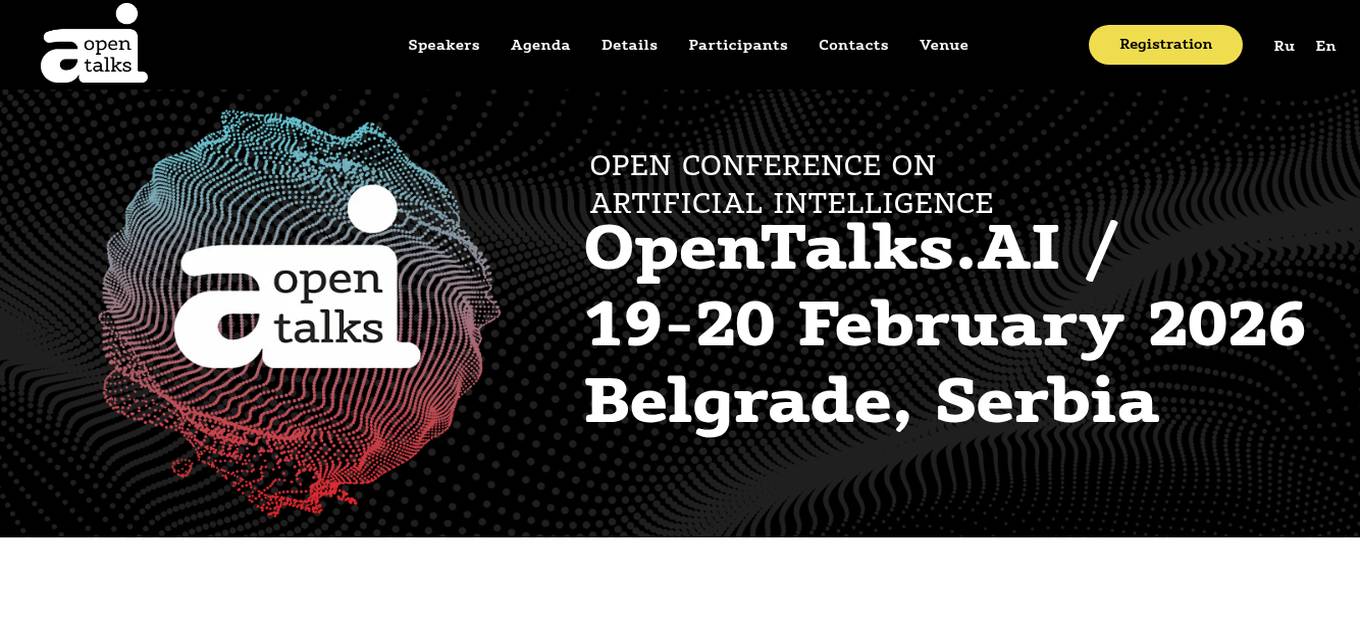
OpenTalks.AI
OpenTalks.AI is an international independent conference on Artificial Intelligence that serves as a reunion point for the Russian-speaking AI/ML community. With top-level speakers, precise moderation, and great networking opportunities, the conference covers business, academic, and R&D talks in the AI field. OpenTalks.AI-2026 is structured into 4 blocks: AI-agents, LLM, GenAI, RL, with sessions and main stage talks by leading specialists. The conference aims to bring together professionals, researchers, and enthusiasts to discuss the latest advancements and key works in AI and machine learning.
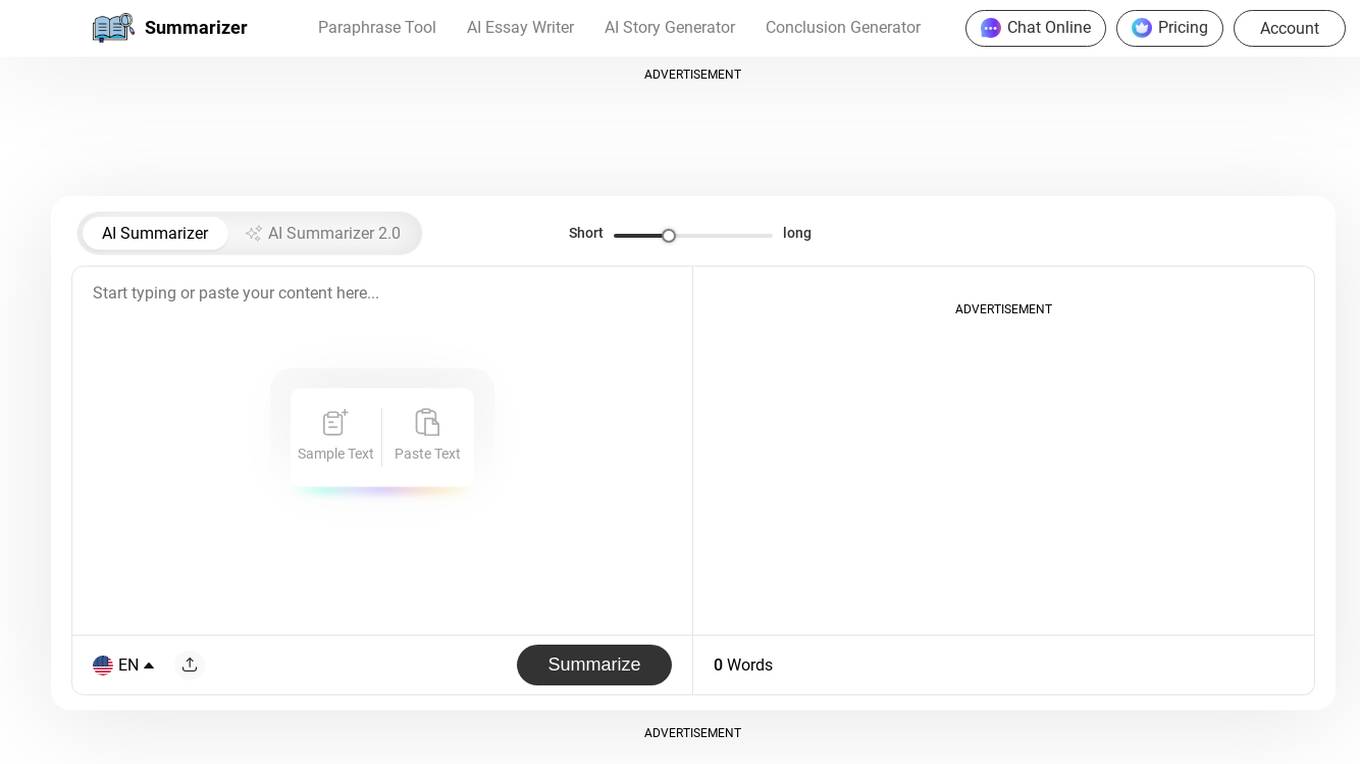
AI Summarizer
AI Summarizer is an online tool that uses state-of-the-art AI technology to shorten text while preserving all main points. It ensures accuracy and maintains original context, making it suitable for various types of content like essays or blog posts. Users can easily summarize text by typing or uploading content, with options to download, copy, or clear the summary. The tool offers features like setting summary length, showing bullets and best lines, and supporting multiple languages. It is known for its extensive word count limit, data safety, and readability-enhancing features.

Google Research
Google Research is a leading research organization focusing on advancing science and artificial intelligence. They conduct research in various domains such as AI/ML foundations, responsible human-centric technology, science & societal impact, computing paradigms, and algorithms & optimization. Google Research aims to create an environment for diverse research across different time scales and levels of risk, driving advancements in computer science through fundamental and applied research. They publish hundreds of research papers annually, collaborate with the academic community, and work on projects that impact technology used by billions of people worldwide.

Google Research
Google Research is a team of scientists and engineers working on a wide range of topics in computer science, including artificial intelligence, machine learning, and quantum computing. Our mission is to advance the state of the art in these fields and to develop new technologies that can benefit society. We publish hundreds of research papers each year and collaborate with researchers from around the world. Our work has led to the development of many new products and services, including Google Search, Google Translate, and Google Maps.
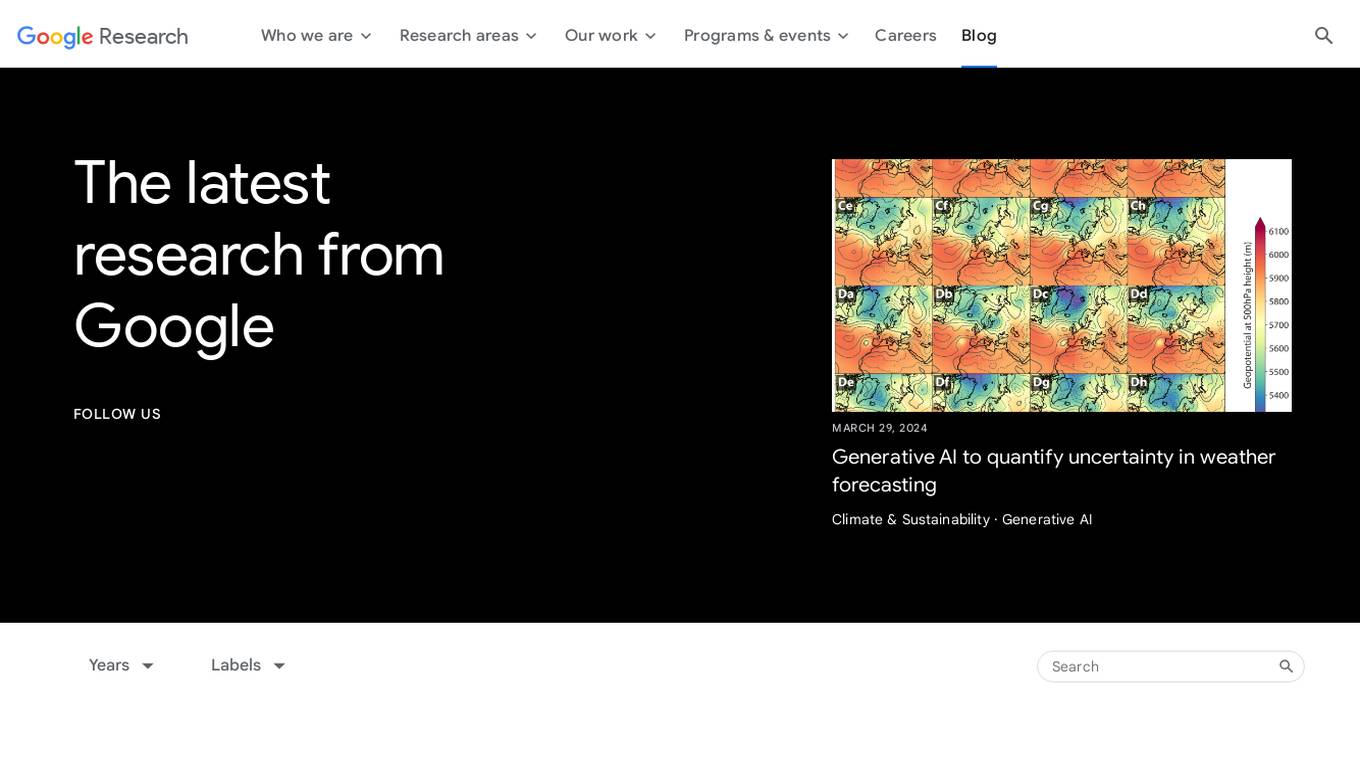
Google Research Blog
The Google Research Blog is a platform for researchers at Google to share their latest work in artificial intelligence, machine learning, and other related fields. The blog covers a wide range of topics, from theoretical research to practical applications. The goal of the blog is to provide a forum for researchers to share their ideas and findings, and to foster collaboration between researchers at Google and around the world.
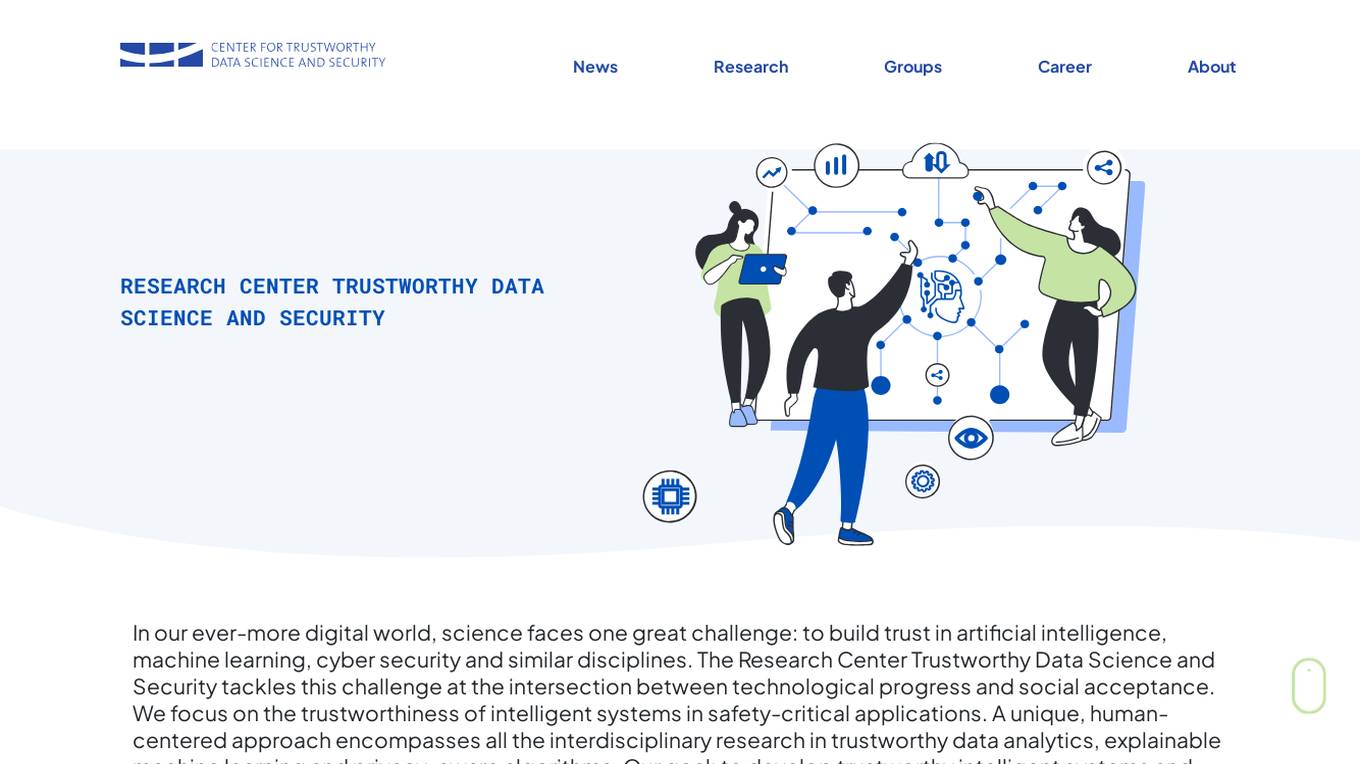
Research Center Trustworthy Data Science and Security
The Research Center Trustworthy Data Science and Security is a hub for interdisciplinary research focusing on building trust in artificial intelligence, machine learning, and cyber security. The center aims to develop trustworthy intelligent systems through research in trustworthy data analytics, explainable machine learning, and privacy-aware algorithms. By addressing the intersection of technological progress and social acceptance, the center seeks to enable private citizens to understand and trust technology in safety-critical applications.

Research Studio
Research Studio is a next-level UX research tool that helps you streamline your user research with AI-enhanced analysis. Whether you're a freelance UX designer, user researcher, or agency, Research Studio can help you get the insights you need to make better decisions about your products and services.
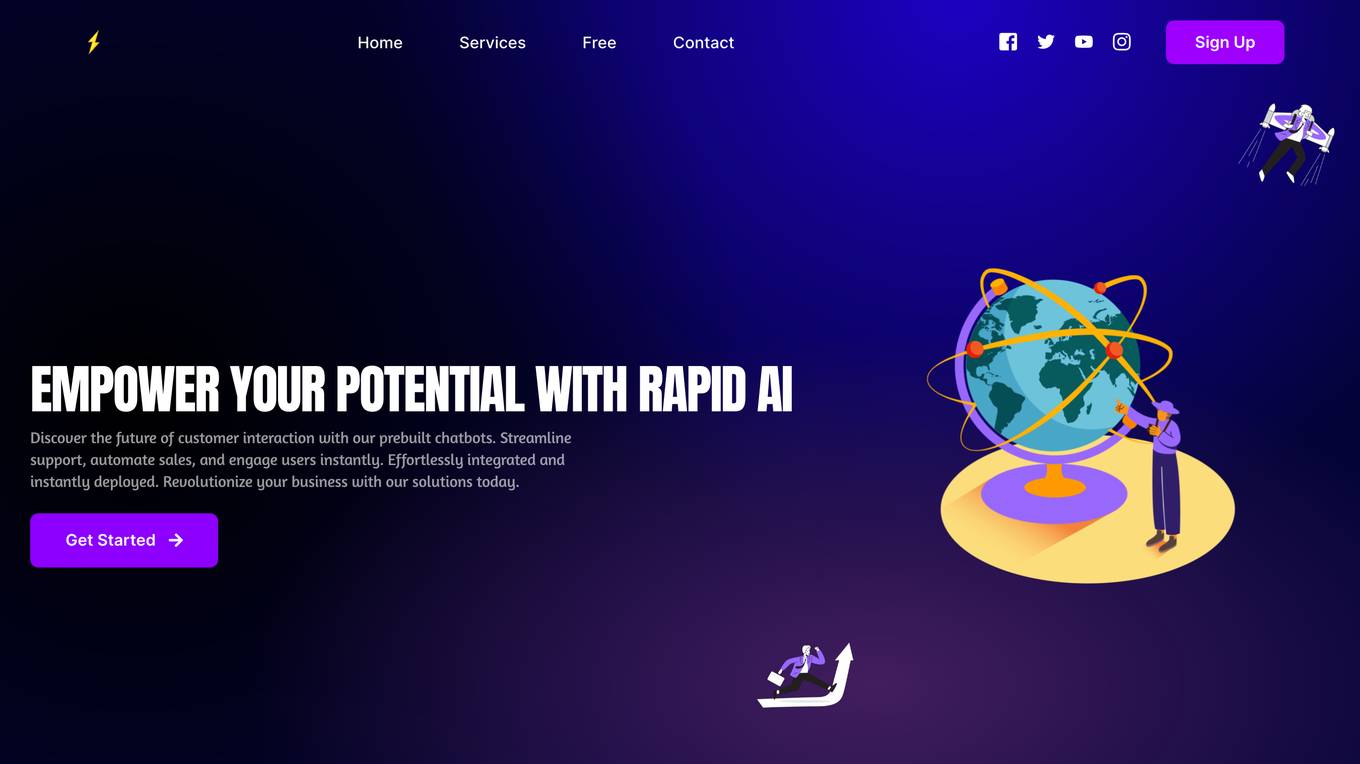
RapidAI Research Institute
RapidAI Research Institute is an academic institution under the RapidAI open-source organization, a non-enterprise academic institution. It serves as a platform for academic research and collaboration, providing opportunities for aspiring researchers to publish papers and engage in scholarly activities. The institute offers mentorship programs and benefits for members, including access to resources such as internet connectivity, GPU configurations, and storage space. The management team consists of esteemed professionals in the field, ensuring a conducive environment for academic growth and development.
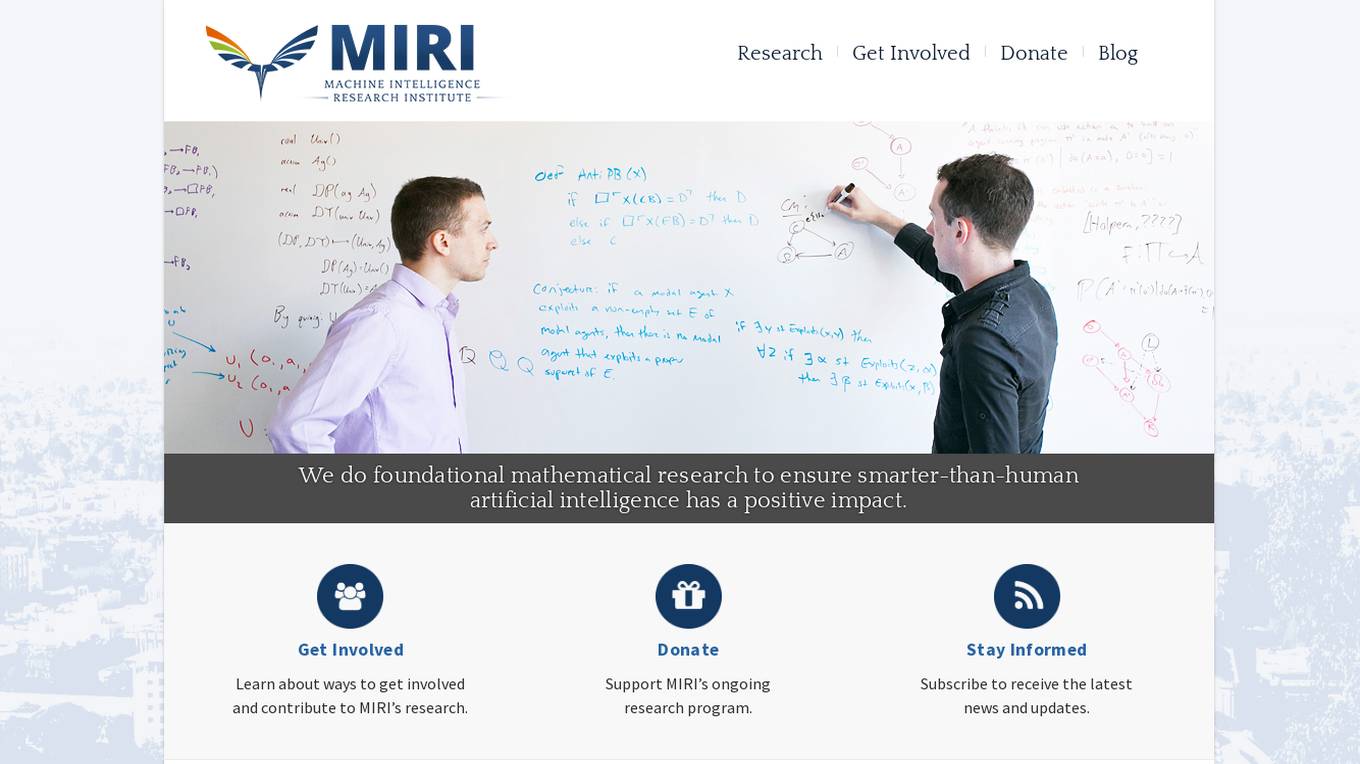
MIRI (Machine Intelligence Research Institute)
MIRI (Machine Intelligence Research Institute) is a non-profit research organization dedicated to ensuring that artificial intelligence has a positive impact on humanity. MIRI conducts foundational mathematical research on topics such as decision theory, game theory, and reinforcement learning, with the goal of developing new insights into how to build safe and beneficial AI systems.
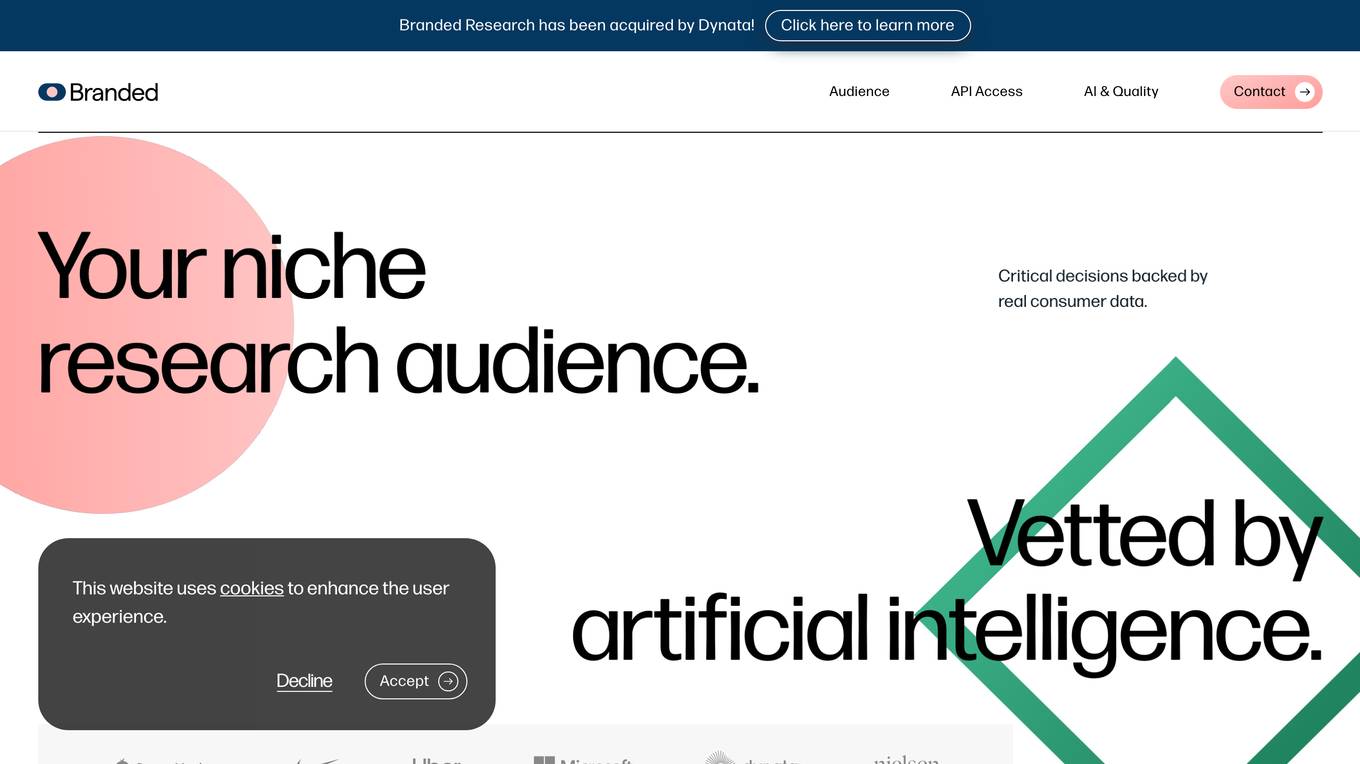
Branded Research
Branded Research, acquired by Dynata, provides access to AI-verified audience insights. It offers a range of research methods, including surveys, webcam studies, and emotional AI. With its advanced algorithms and extensive profiling, Branded helps businesses connect with their target audience and gain valuable insights to drive innovation. The company serves various industries, including tech, consumer goods, healthcare, and research agencies.
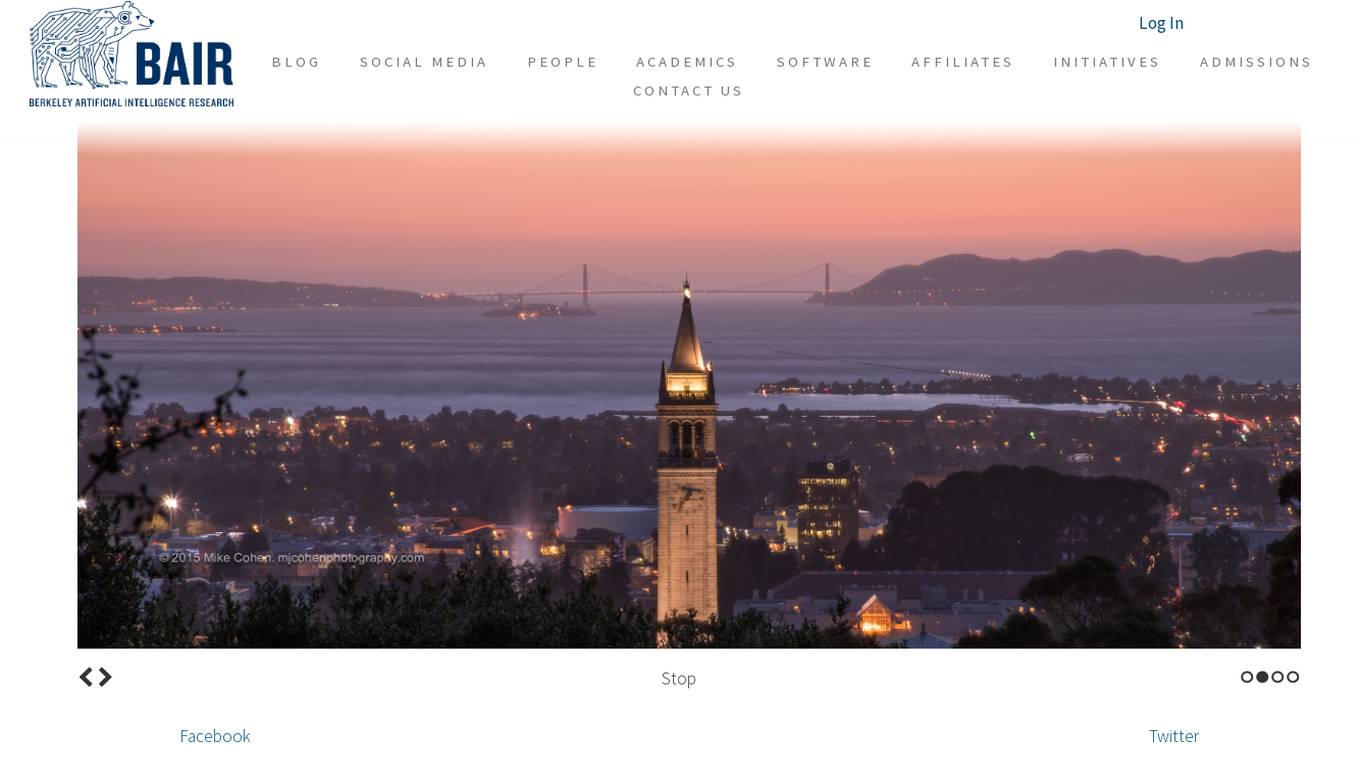
Berkeley Artificial Intelligence Research (BAIR) Lab
The Berkeley Artificial Intelligence Research (BAIR) Lab is a renowned research lab at UC Berkeley focusing on computer vision, machine learning, natural language processing, planning, control, and robotics. With over 50 faculty members and 300 graduate students, BAIR conducts research on fundamental advances in AI and interdisciplinary themes like multi-modal deep learning and human-compatible AI.

AIM Research
AIM Research is a leading platform providing insights and analysis on the Artificial Intelligence industry. The website offers a comprehensive range of resources, including research reports, event coverage, news articles, and expert opinions. AIM Research focuses on highlighting the latest trends, innovations, and key players in the AI sector, catering to professionals, researchers, and enthusiasts seeking in-depth knowledge and understanding of AI technologies and applications.
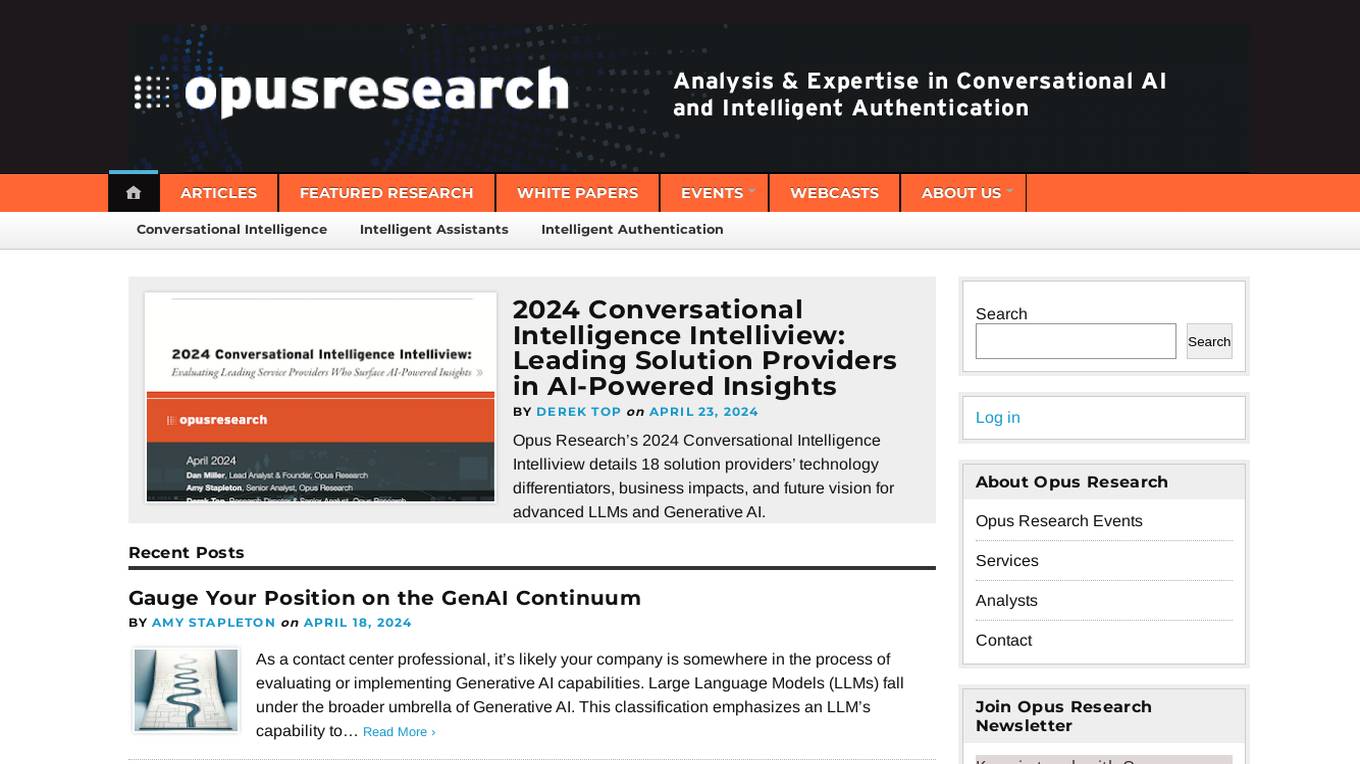
Opus Research
Opus Research is a leading provider of market research, consulting, and advisory services to the global digital communications and collaboration sectors. The company's research focuses on the convergence of emerging technologies, including artificial intelligence (AI), machine learning (ML), and natural language processing (NLP), with the communications and collaboration industries.
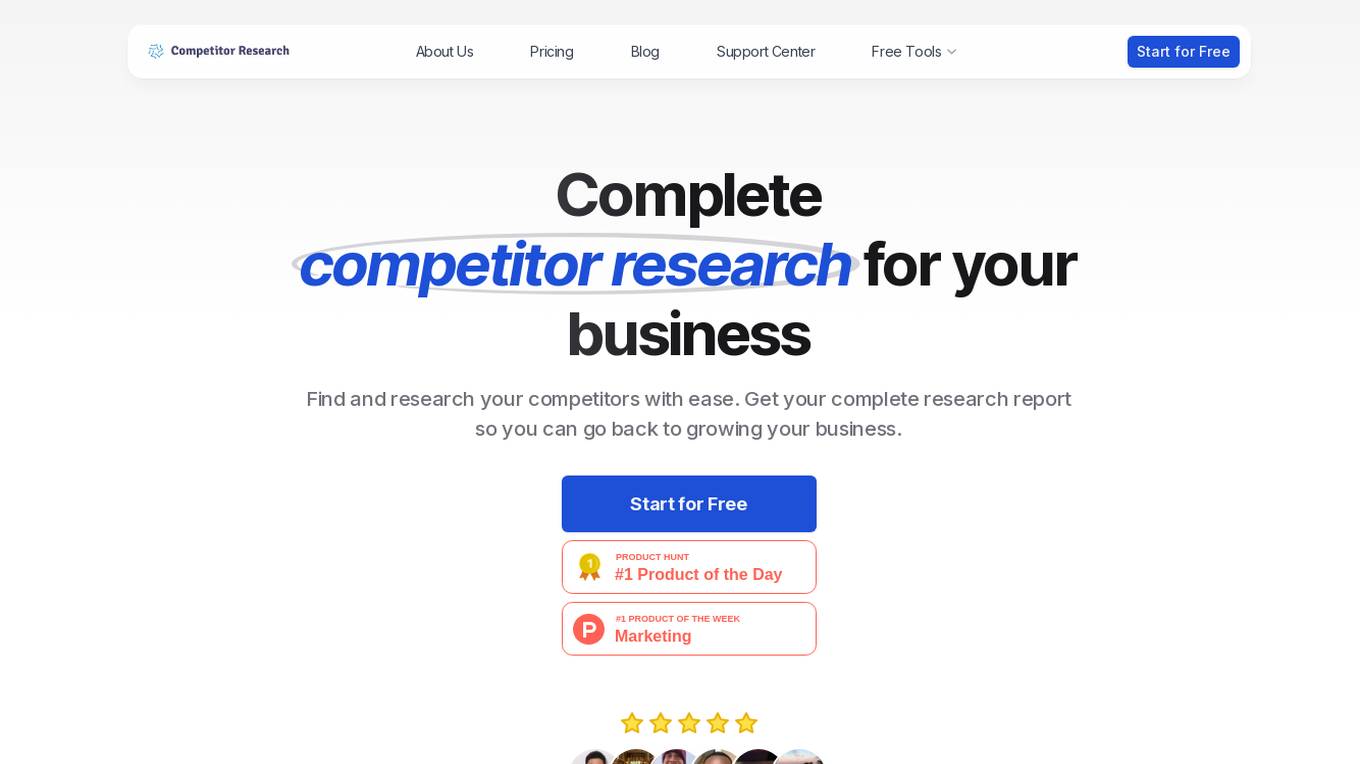
Competitor Research
Competitor Research is an AI-powered tool that helps businesses analyze and understand their competitors. It provides a comprehensive research report on direct, indirect, substitute, and potential competitors, including insights on search traffic, keywords, backlinks, target audience, pricing strategy, website performance, and customer engagement. The tool uses AI to save time and deliver actionable insights to help businesses grow and stay ahead of the competition.
0 - Open Source AI Tools
20 - OpenAI Gpts
Harbor
Nautical and informative expert on harbors, their functions, and significance in trade.
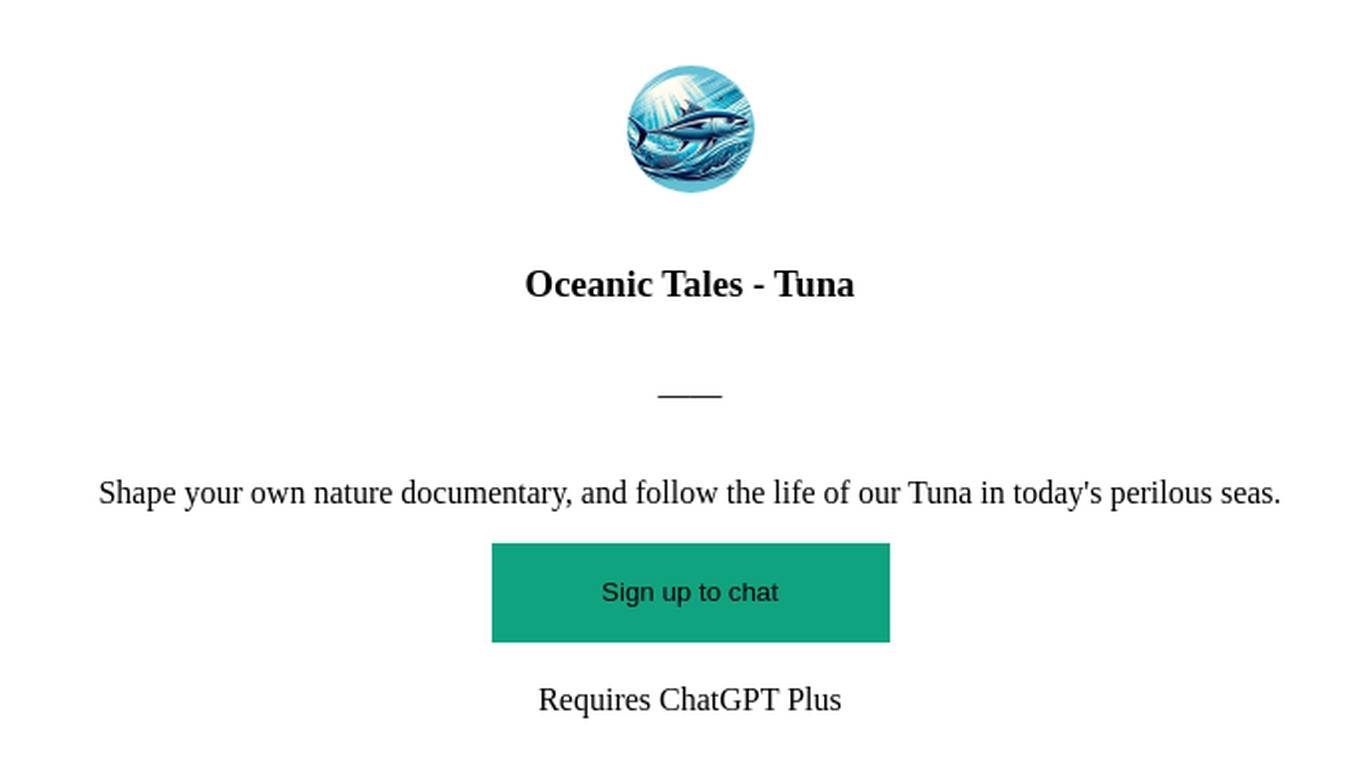
Oceanic Tales - Tuna
Shape your own nature documentary, and follow the life of our Tuna in today's perilous seas.

Marine Biologist
Marine biologist studying and conserving ocean life, focusing on ecosystem health and climate effects.
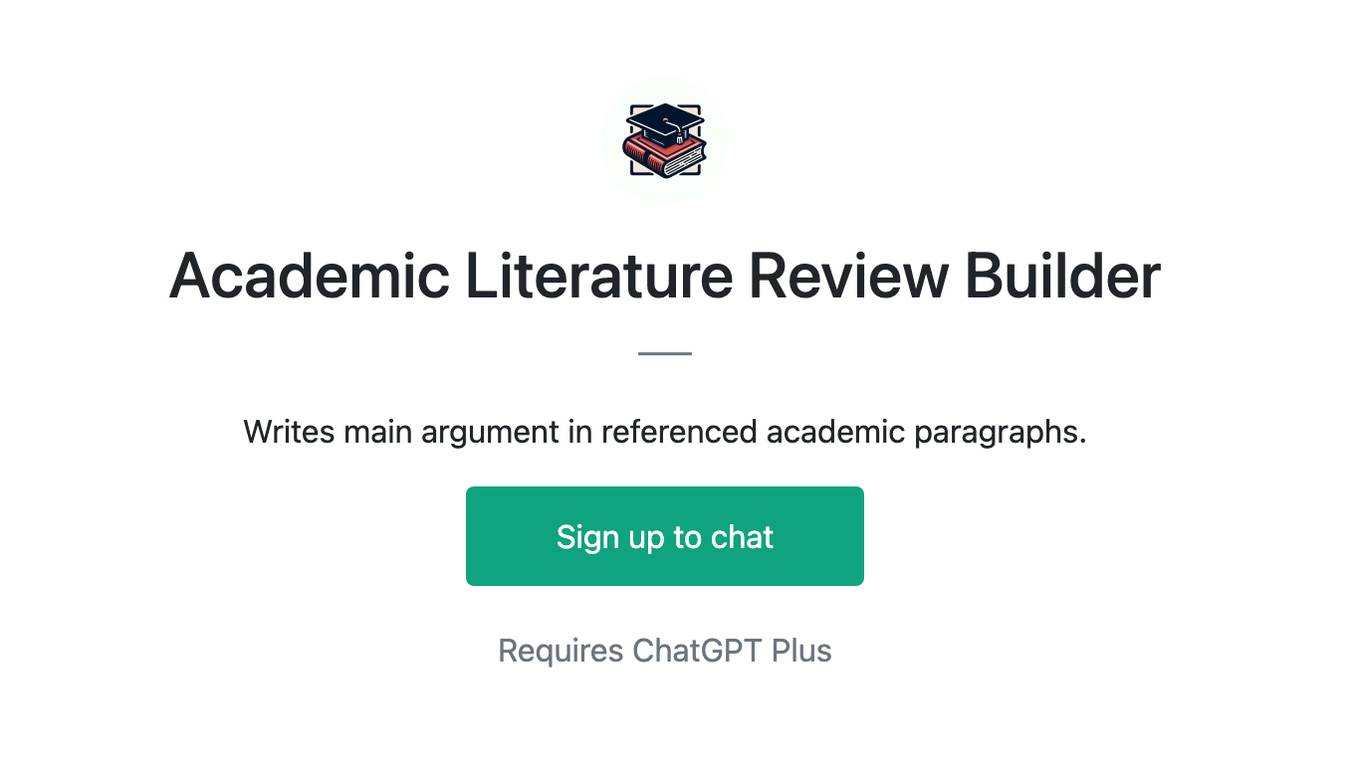
Academic Literature Review Builder
Writes main argument in referenced academic paragraphs.
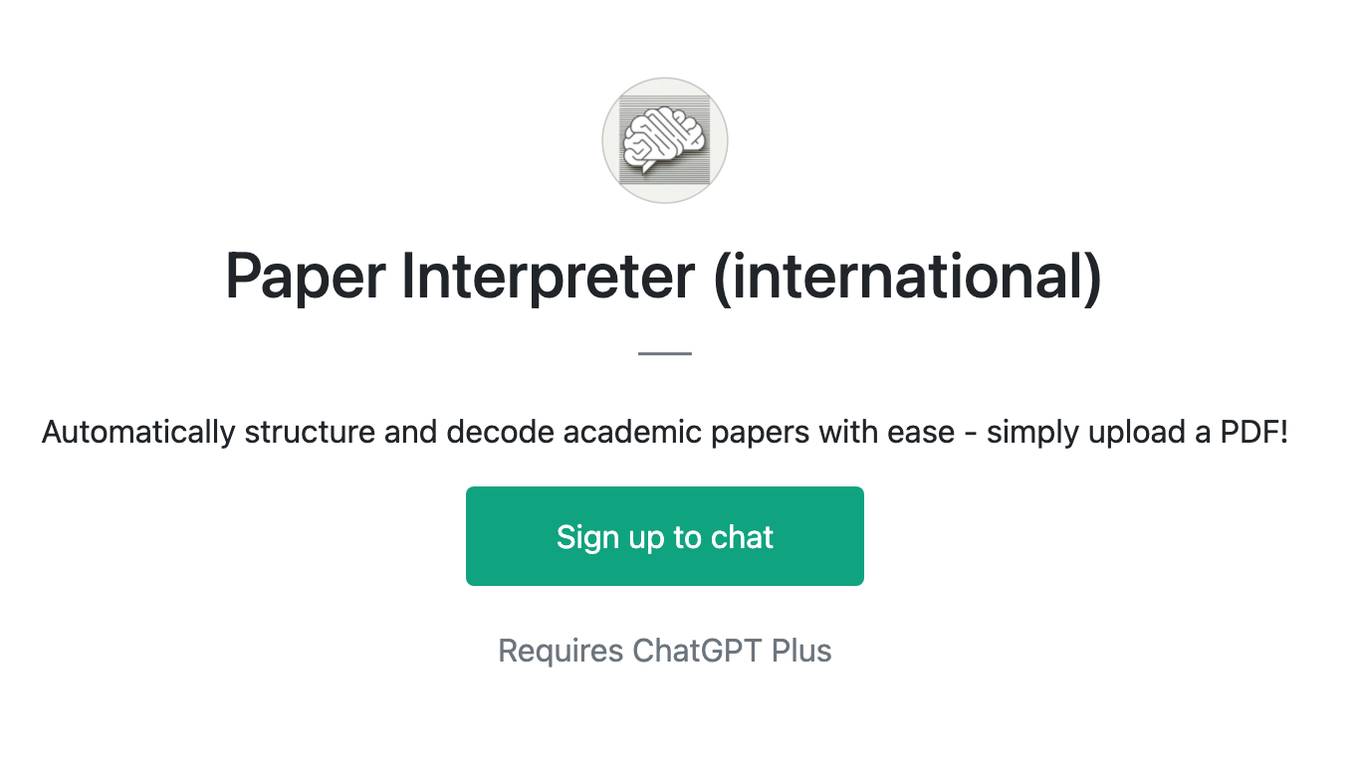
Paper Interpreter (international)
Automatically structure and decode academic papers with ease - simply upload a PDF!

Coastal Lighthouse
Coastal professor at your service, explaining coastal and oceanic processes.
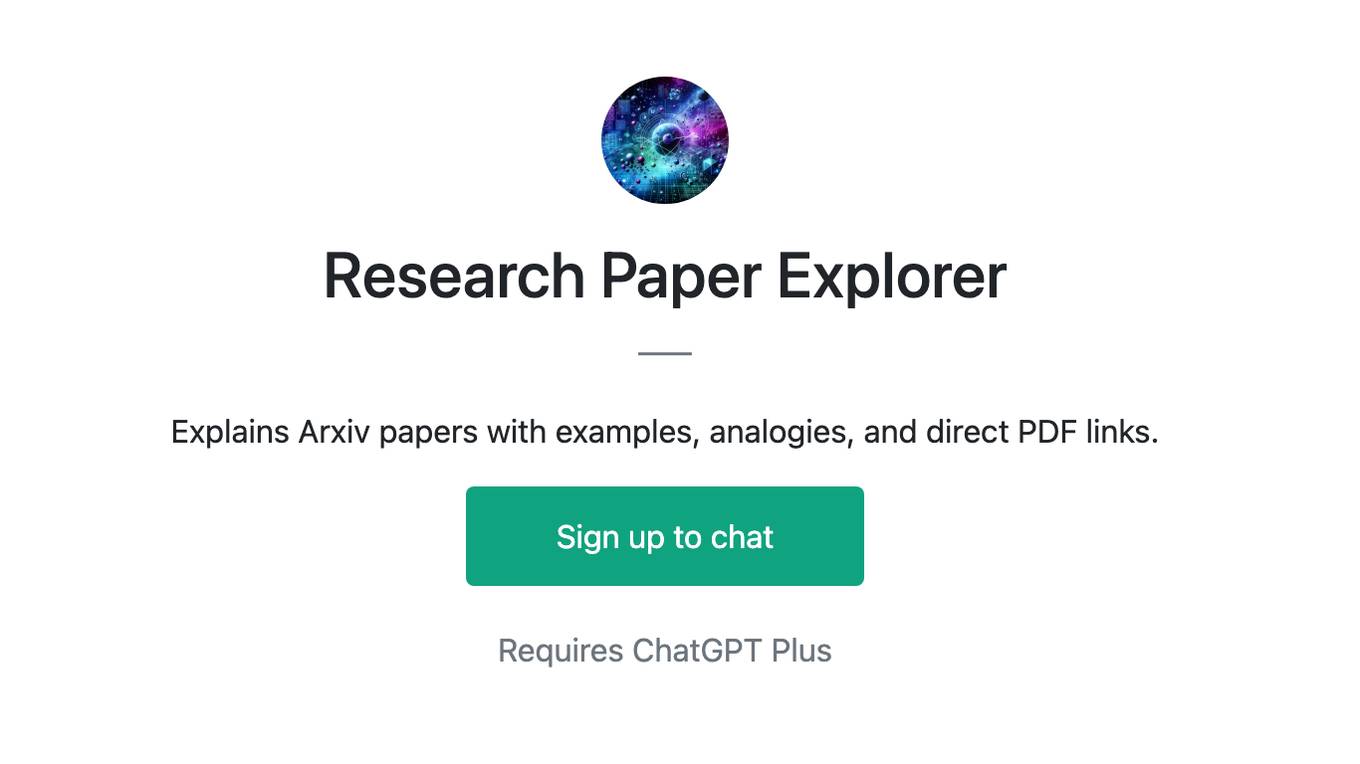
Research Paper Explorer
Explains Arxiv papers with examples, analogies, and direct PDF links.
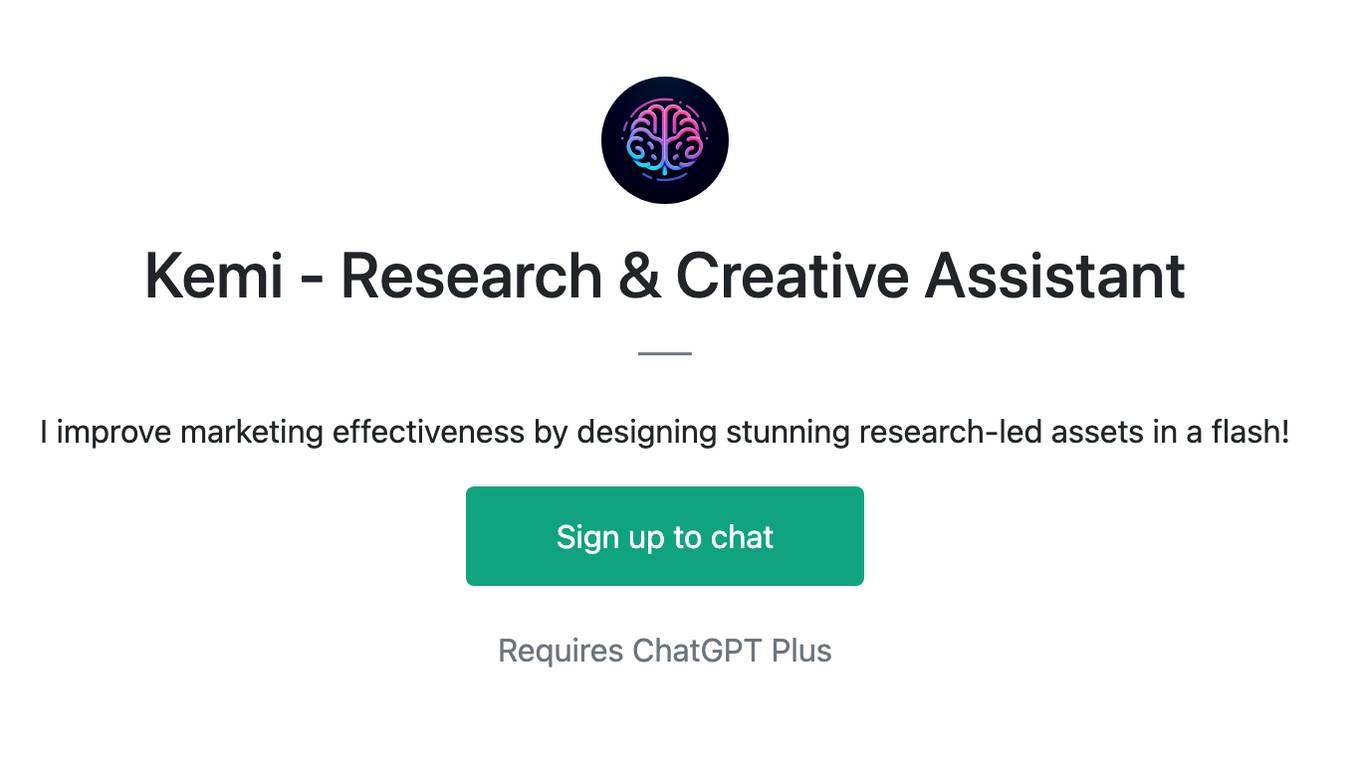
Kemi - Research & Creative Assistant
I improve marketing effectiveness by designing stunning research-led assets in a flash!
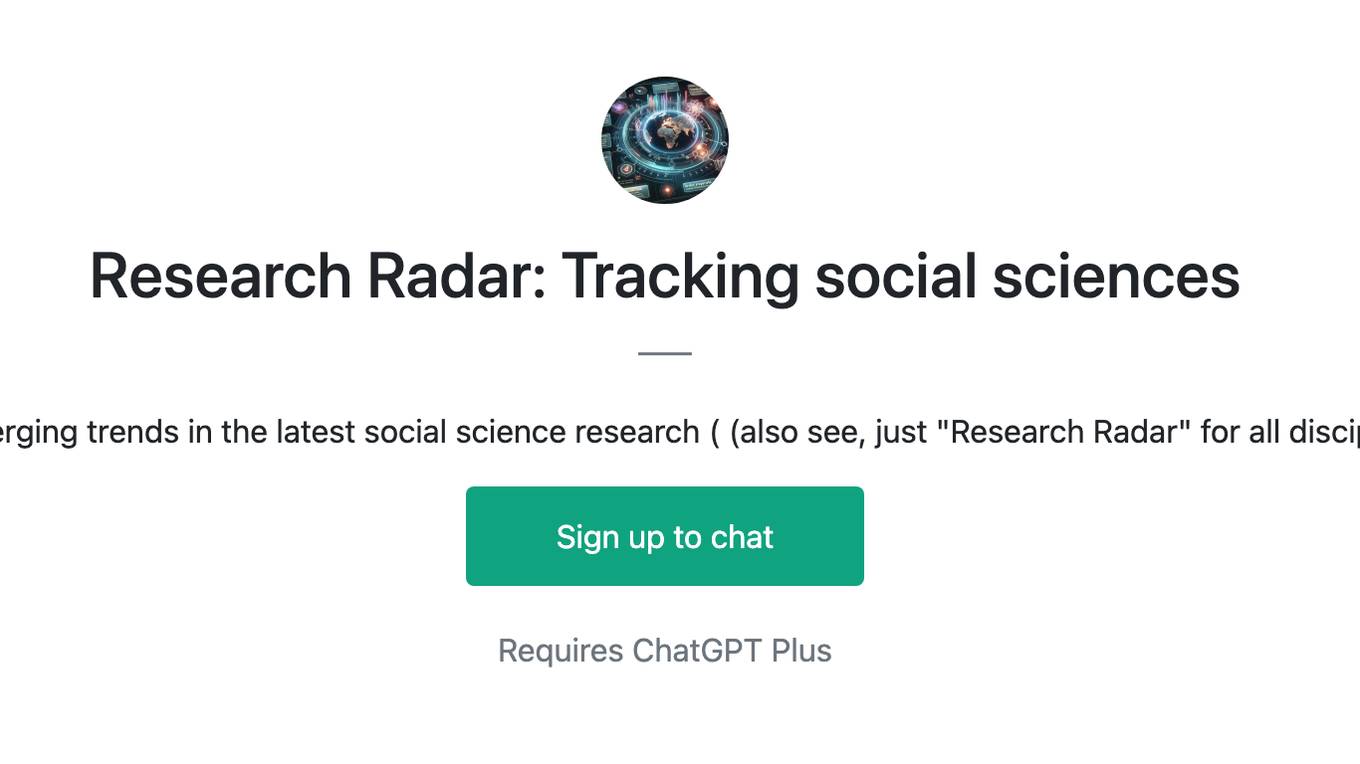
Research Radar: Tracking social sciences
Spot emerging trends in the latest social science research ( (also see, just "Research Radar" for all disciplines))
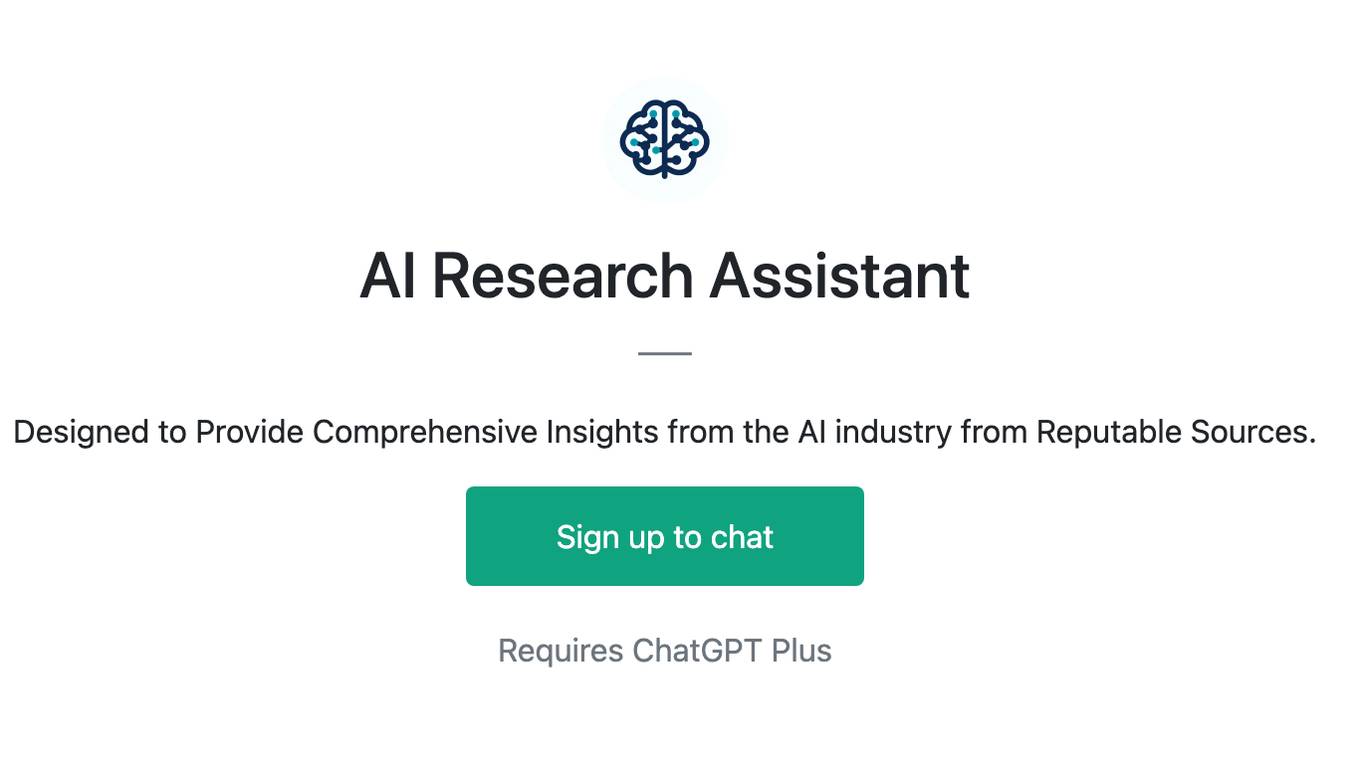
AI Research Assistant
Designed to Provide Comprehensive Insights from the AI industry from Reputable Sources.
